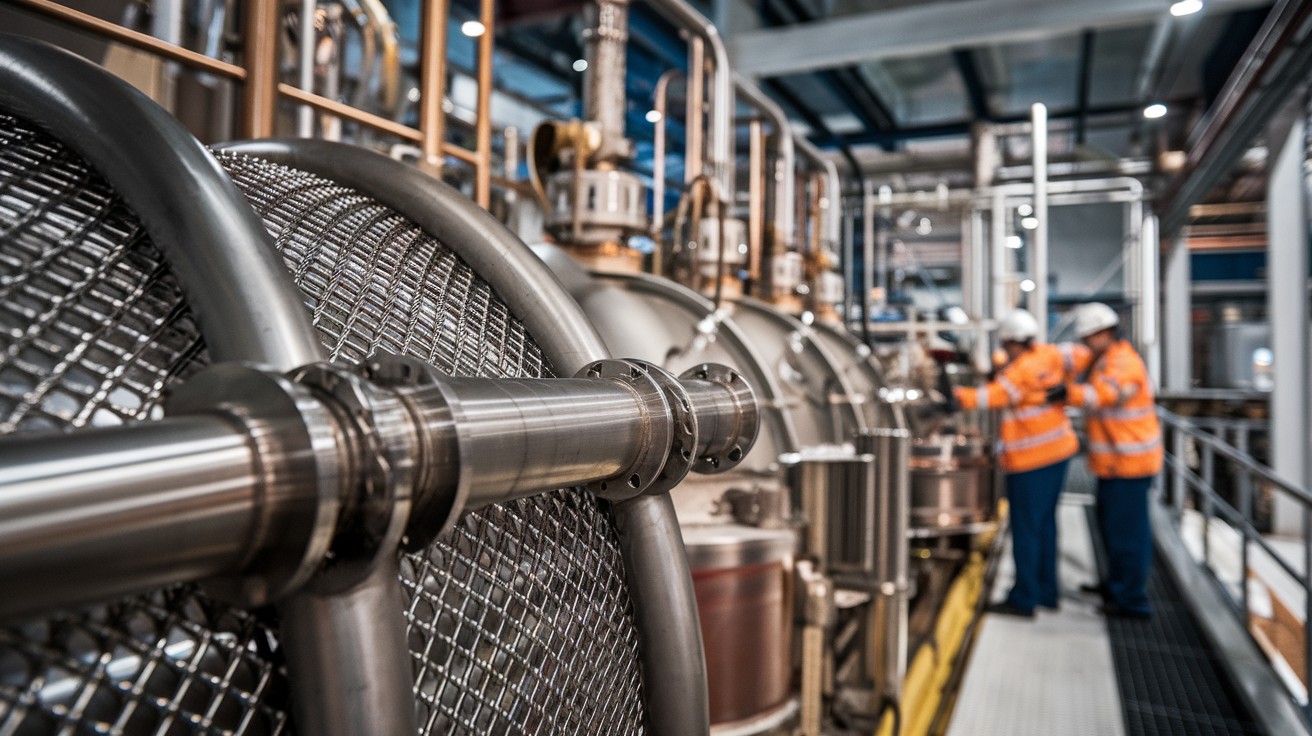In the demanding environment of oil refineries, where extreme pressures and corrosive conditions are daily challenges, stainless steel mesh stands as a critical component in ensuring efficient and safe operations. This essential material plays a vital role in filtration, separation, and processing applications throughout the refining process.
Superior Performance Under Pressure
High-Pressure Capabilities
●Withstands pressures up to 1000 PSI
●Maintains structural integrity under cyclic loading
●Resistant to pressure-induced deformation
●Excellent fatigue resistance properties
Material Durability
1. Corrosion ResistanceSuperior resistance to hydrocarbon exposure
a. Protection against sulfur compounds
b. Withstands acidic environments
c. Resistant to chloride attack
2. Temperature ToleranceOperating range: -196°C to 800°C
a. Thermal shock resistance
b. Dimensional stability at high temperatures
c. Low thermal expansion characteristics
Applications in Refinery Operations
Crude Oil Processing
●Pre-filtration systems
●Desalter units
●Atmospheric distillation
●Vacuum distillation support
Secondary Processing
●Catalytic cracking units
●Hydrocracking systems
●Reforming processes
●Coking operations
Technical Specifications
Mesh Characteristics
●Mesh counts: 20-500 per inch
●Wire diameters: 0.025-0.5mm
●Open area: 25-65%
●Multiple weave patterns available
Material Grades
●316/316L for general applications
●904L for severe conditions
●Duplex grades for high-pressure environments
●Special alloys for specific requirements
Case Studies
Major Refinery Success Story
A Gulf Coast refinery reduced maintenance downtime by 40% after implementing high-grade stainless steel mesh filters in their crude processing units.
Petrochemical Plant Achievement
Implementation of custom-designed mesh elements resulted in a 30% increase in filtration efficiency and extended equipment life by 50%.
Performance Optimization
Installation Considerations
●Proper support structure design
●Correct tensioning methods
●Seal integrity maintenance
●Regular inspection protocols
Maintenance Protocols
●Cleaning procedures
●Inspection schedules
●Replacement criteria
●Performance monitoring
Cost-Benefit Analysis
Operational Benefits
●Reduced maintenance frequency
●Extended equipment life
●Improved product quality
●Lower operating costs
Long-term Value
●Initial investment considerations
●Lifecycle cost analysis
●Performance improvements
●Maintenance savings
Industry Standards Compliance
●API (American Petroleum Institute) standards
●ASME pressure vessel codes
●ISO quality management systems
●Environmental compliance requirements
Future Developments
Emerging Technologies
●Advanced alloy development
●Smart monitoring systems
●Improved weave patterns
●Enhanced surface treatments
Industry Trends
●Increased automation
●Higher efficiency requirements
●Stricter environmental standards
●Enhanced safety protocols
Conclusion
Stainless steel mesh continues to prove its worth in oil refinery applications through unmatched durability, reliability, and performance under pressure. As refineries face increasingly demanding operational requirements, this versatile material remains at the forefront of filtration and separation technology.
Post time: Nov-15-2024




